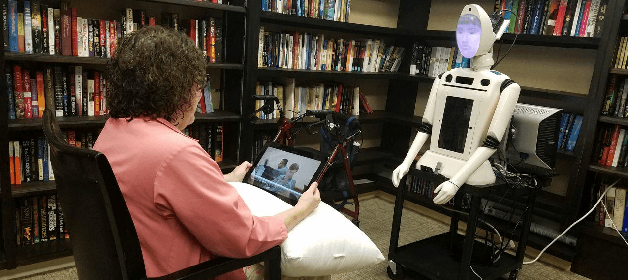Sarah Schoeder
Delivering Cognitive Behavioral Therapy Using A Conversational SocialRobot
Sep 14, 2019



Abstract:Social robots are becoming an integrated part of our daily life due to their ability to provide companionship and entertainment. A subfield of robotics, Socially Assistive Robotics (SAR), is particularly suitable for expanding these benefits into the healthcare setting because of its unique ability to provide cognitive, social, and emotional support. This paper presents our recent research on developing SAR by evaluating the ability of a life-like conversational social robot, called Ryan, to administer internet-delivered cognitive behavioral therapy (iCBT) to older adults with depression. For Ryan to administer the therapy, we developed a dialogue-management system, called Program-R. Using an accredited CBT manual for the treatment of depression, we created seven hour-long iCBT dialogues and integrated them into Program-R using Artificial Intelligence Markup Language (AIML). To assess the effectiveness of Robot-based iCBT and users' likability of our approach, we conducted an HRI study with a cohort of elderly people with mild-to-moderate depression over a period of four weeks. Quantitative analyses of participant's spoken responses (e.g. word count and sentiment analysis), face-scale mood scores, and exit surveys, strongly support the notion robot-based iCBT is a viable alternative to traditional human-delivered therapy.
 Add to Chrome
Add to Chrome Add to Firefox
Add to Firefox Add to Edge
Add to Edge